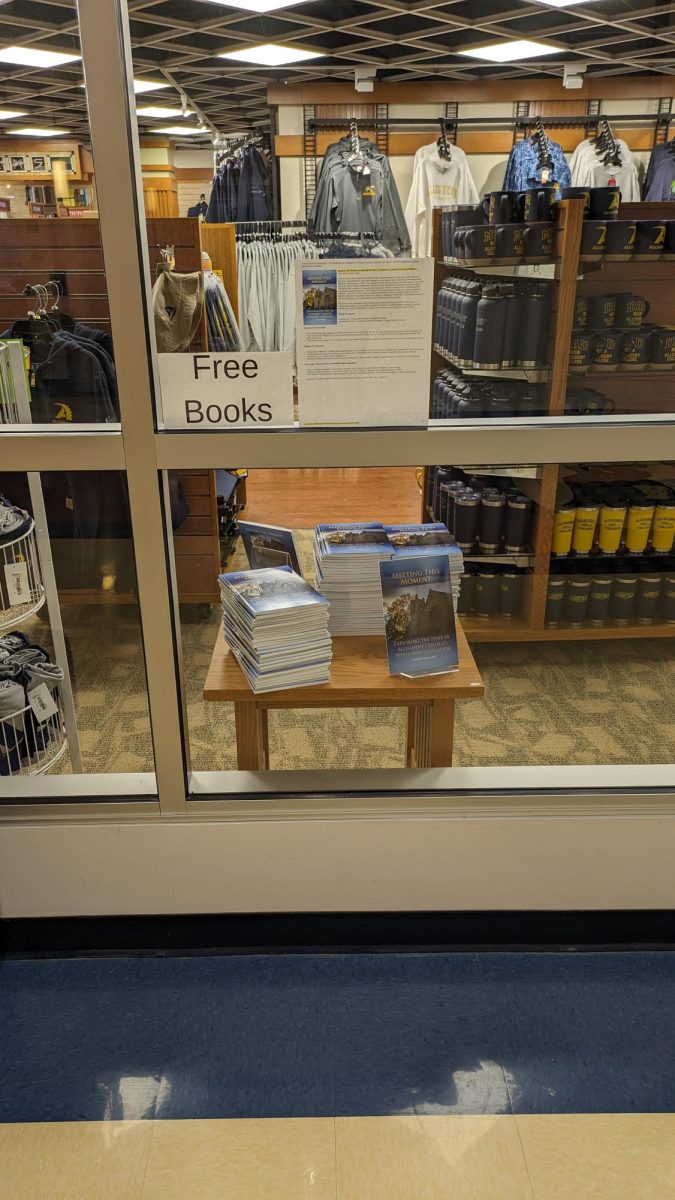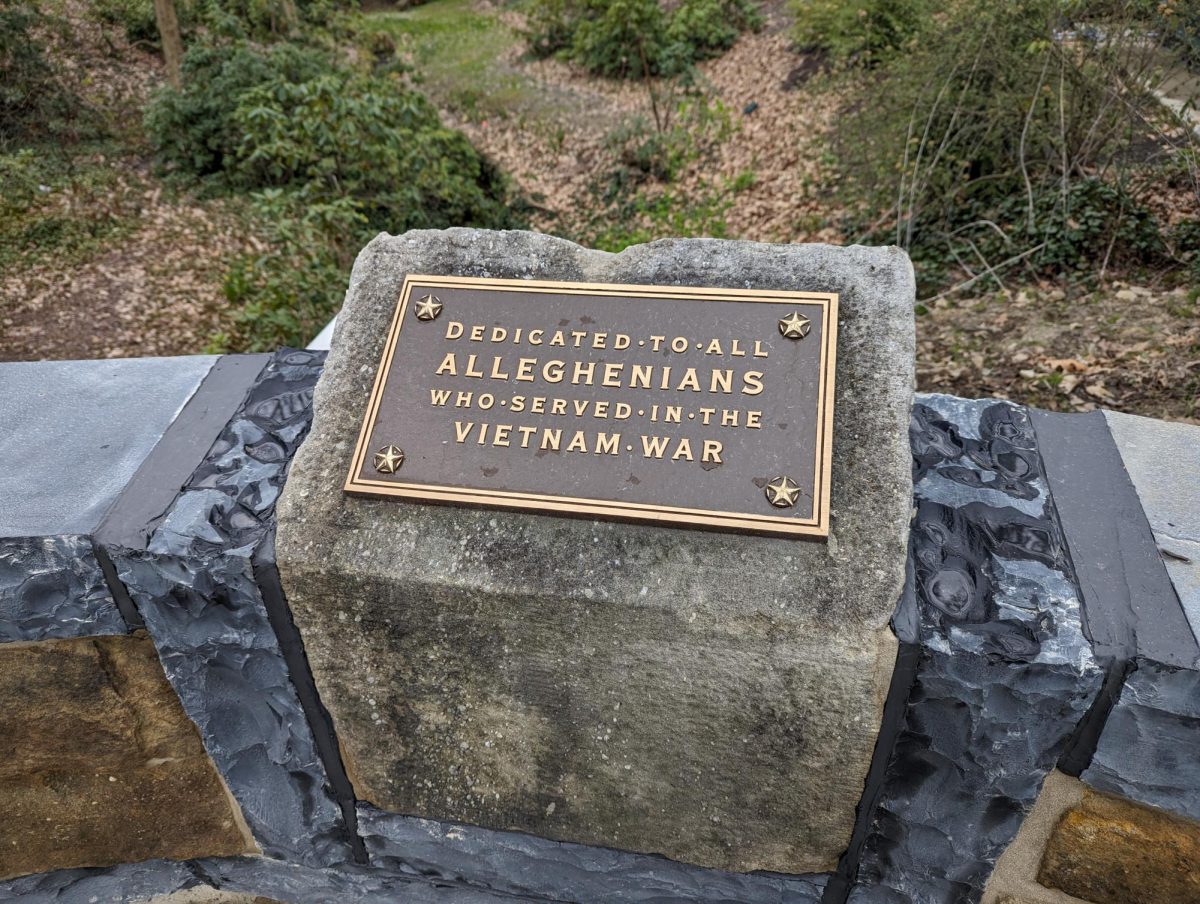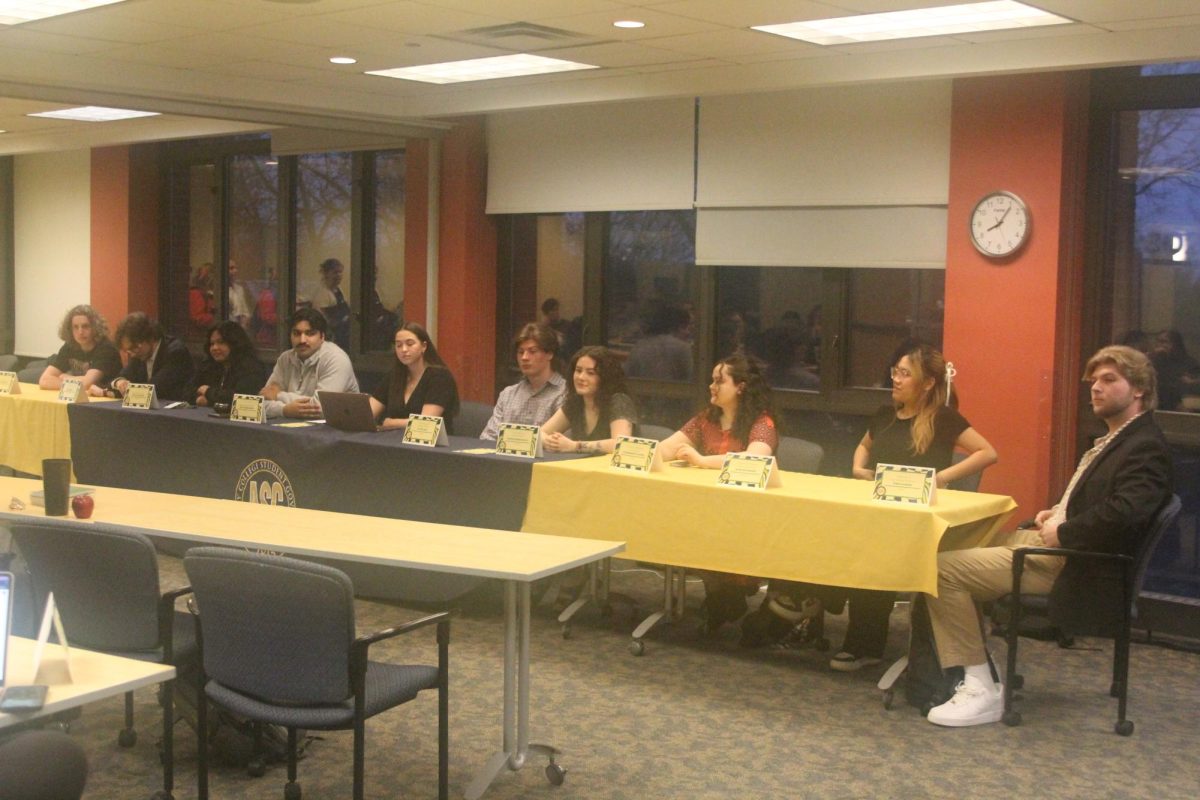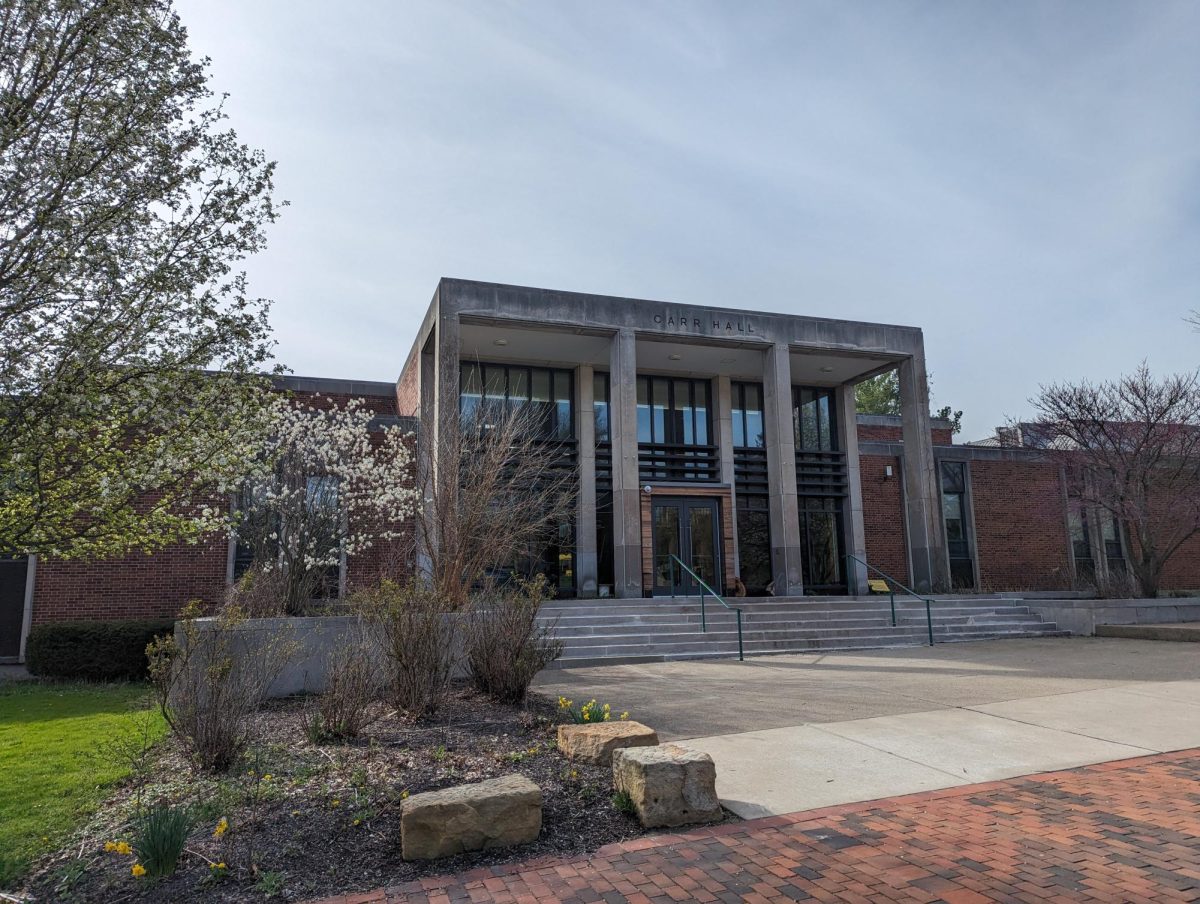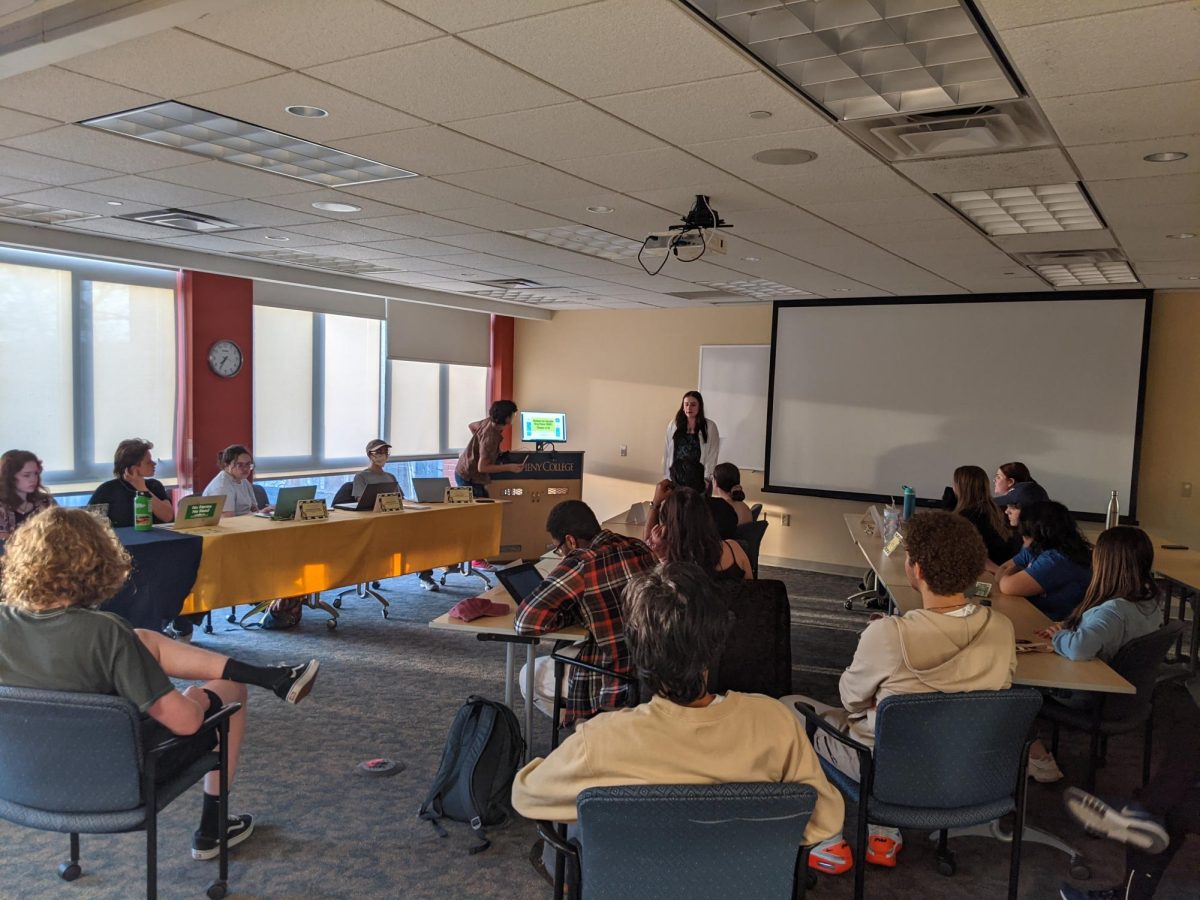If not for the funding provided by the Pittsburgh Conference of the Methodist Episcopal Church, Allegheny College would have likely permanently been closed forever. The partnership allowed not only Allegheny to remain open, but also maintained a close relationship with the church for many years. This relationship, however, was re-examined through a modern lens when some policies of the church were considered to be problematic.
A symposium took place March 17 and 18 of 2023 to discuss the ethics of this relationship. Joanne Berger-Sweeney, the president of Trinity College, Rev. Peter Weaver, a former United Methodist Church bishopand Vice President of Religion at the Chautauqua Institution Melissa Spas, ’03, were all keynote speakers offering their opinions on the matter. The notes, speeches, and other relevant anecdotes were then collected into a volume, edited and compiled by Chaplain Emerita Jane Ellen Nickell with help from Charlie Waid, ’25. This volume was made not to argue in any particular way, but to educate those reading it to find their own conclusions on the matter, according to Nickell. The books are now available for free at the Merriman Campus Store.
In an interview last week, Nickell spoke about her experience creating the book.
“In 2019 and 2020, there was a lot of conversation on campus because the United Methodist Church passed a really restrictive policy surrounding LGBTQ persons,” Nickell said. “At that time, both the faculty and the student government petitioned the Board of Trustees to disaffiliate. The trustees were considering that, but it felt like the conversation was just really, obviously highly charged, a very hurtful issue for a lot of people in our community and that we really didn’t have a robust conversation about it.”
At specific issue is the church’s 2019 “Traditional Plan,” which punishes clergy that perform same-sex marriage and that identify as LGBTQ. Allegheny has suspended its affiliation and is not accepting donations from the church until the Traditional Plan is repealed, The Campus reported in 2022.
Nickell says she was also approached to consider a church-related institution grant that specifically looked at its social context, which matched the conversations being had at the time. This inspired her team to hold a symposium similar to one that was held in 1991 on the church and college relationship.
“It was not, and I want to make this very clear, it was not to decide whether we should or should not be affiliated with the Methodist Church,” Nickell said. “That’s a decision for the Board of Trustees.”
Nickell also emphasized the point of this symposium was not to make a final decision on the relationship between the college and the church, but to have a larger conversation.
“Part of the grant was that we would then publish those papers and addresses in a book so that the conversation wouldn’t just end and that we could carry it farther than the people who were there that weekend,” she said.
Waid also worked to compile research and other useful information relating to the subject.
“I was mainly tasked with researching and writing about the history of the college’s relationship with the Methodist Church, and how it had changed over time.” Waid wrote in an email to The Campus. “From a student’s perspective, I appreciate being more aware of where Allegheny stands with the Methodist church and what decisions will be made in the future that can alter this relationship.”
Nickell also shared that the information from the book can help in ethics debates and other problem-solving discourses. Because they were able to print out extra copies, the book has even been mailed out to presidents of other Methodist-affiliated colleges who may be considering their own affiliations.
“One of the papers I thought was really helpful and I think can be helpful to other institutions considering this, but any time that you’d find an ethical conflict, was a paper by Rev. Erik Hoeke,” Nickell said.
In his paper, Hoeke used an example of three friends deciding where to eat for lunch. One friend, a vegetarian, wants to dine at a vegetarian restaurant. However, another friend wants to only eat at a local restaurant to specifically support small businesses, demonstrating conflicting ethics between individuals. The paper went over how to resolve ethical conflicts such as these, as well as others that readers may find themselves in.
Waid said he learned a lot about the process of research for this book and that he hopes readers will be able to take away the skill of being able to educate themselves to voice their opinions.
“Decisions will need to be made in the future of their current relationship status and I hope people will be more inclined to voice their opinions with the information provided by this book,” Waid wrote.
Nickell shared a similar sentiment.
“I guess the take away would be ‘This is not a simple yes or no question,’” Nickell said. “And I think that’s why I like Erik Hoeke’s paper; it gets into some of that complexity.”
‘Meeting this Moment’ book releases on UMC ties
The proceedings of the 2023 conference that was held to evaluate Allegheny’s affiliation with the Methodist Church are now available in a book free to students in the Merriman Campus Store.
Story continues below advertisement
About the Contributor
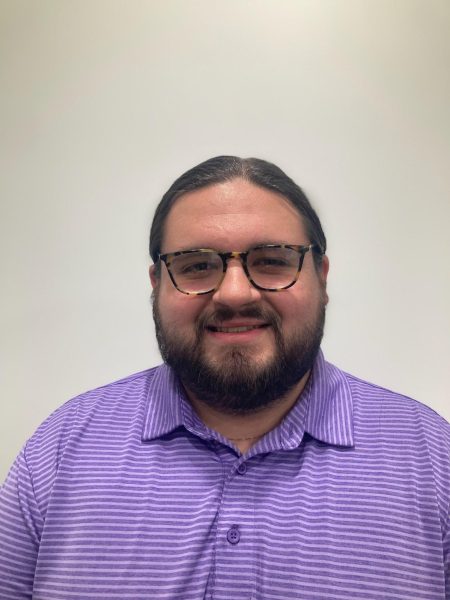
Joseph Klepeis, Staff Writer
Joseph Klepeis III is a sophomore from Bentleyville, Pennsylvania. He plans to major in English with a minor in Political Science. This is his first year on staff as a staff writer. In his free time, Joe enjoys reading, traveling, and listening to music.



